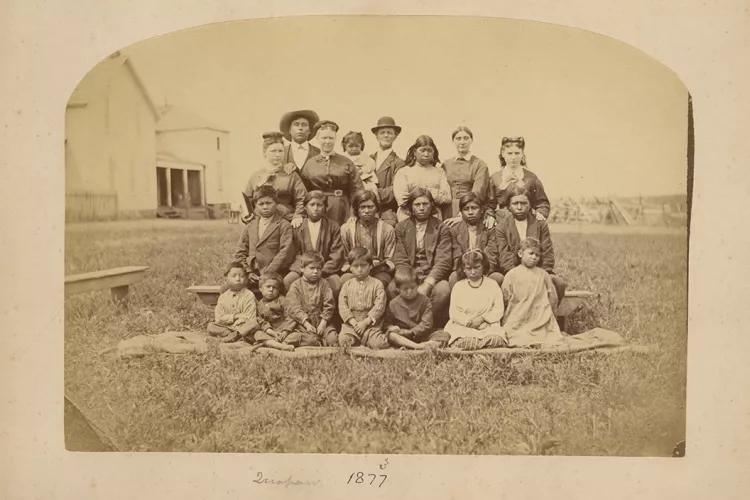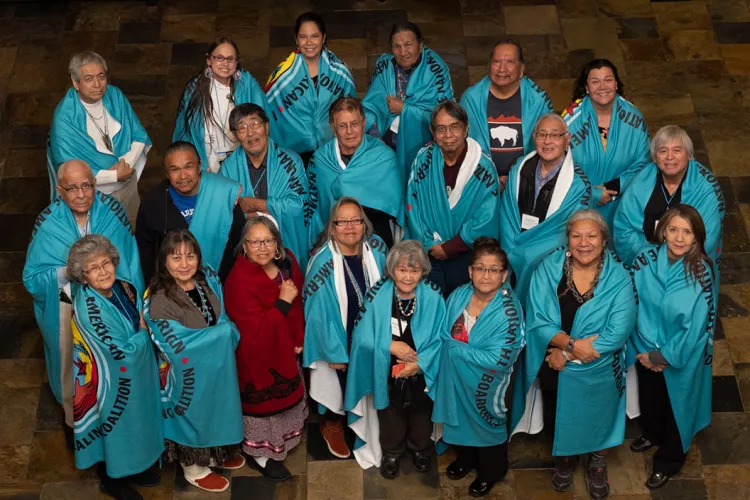Digitizing Records to Bring Clarity to the History of Quaker-Operated Indian Boarding Schools

Beginning in fall 2023, NABS, Swarthmore College Friends Historical Library, and Haverford will scan the 20,000 pages of enrollment papers, financial information, correspondence, administrative records, and photographs such as this one, which features children from the Quapaw tribe.
The National Native American Boarding School Healing Coalition (NABS) is partnering with Friends Historical Library of Swarthmore College and Quaker & Special Collections at Haverford College to digitize 20,000 archival pages related to Quaker-operated Indian boarding schools. The project is funded by a grant of $124,311 that NABS was awarded from the National Historic Publications and Records Commission.
“We are grateful to Swarthmore and Haverford for their willingness to partner with us as we try to better understand this history,” said Stephen R. Curley (Diné), director of digital archives for NABS. “This partnership is unique and necessary, and we hope it creates more opportunities in the future. It is going to take all communities working together to reveal the truth about Indian boarding schools.”
Documents related to Quaker-operated Indian boarding schools have been largely understudied, as they exist in scattered collections with limited access. The records, ranging from 1852-1945, relate to at least nine Quaker-operated Indian boarding schools that were located in Indiana, Kansas, Nebraska, New York, Ohio, Oklahoma, and Pennsylvania.

Indian boarding schools survivors at the National Native American Boarding School Healing Coalition’s Healing Summit in November 2019 at the Tulalip Resort Casino in Tulalip, Wash.
“I hope this partnership opens the door for more discussion and understanding about religious institutions’ role in the operation of Indian boarding schools,” said Celia Caust-Ellenbogen ’09, associate curator for Friends Historical Library of Swarthmore College. “These records can inform us about the conditions in which Native students lived, how Quaker institutions were financed through the federal government, and reveal the motivations behind U.S. assimilation policy design.”
Beginning in fall 2023, NABS, Swarthmore College Friends Historical Library, and Haverford will scan the 20,000 pages of enrollment papers, financial information, correspondence, administrative records, and photographs. Following the scanning process, a community information session will be held with Native communities to discuss the project findings. The project will also include the production of a video that shares oral histories from boarding school survivors, their families, and others.
In spring 2024, the 20,000 digitized records will be made publicly available on a database called the National Indian Boarding School Digital Archive (NIBSDA).
“The digitization of these collections will yield new research and narratives about the underexamined history of Quaker-operated Indian boarding schools,” said Sarah Horowitz, curator of rare books & manuscripts and head of Quaker & Special Collections at Haverford College. “These records reveal storied experiences and information that is too often absent from the public record, but that are increasingly sought by historians of Native American and American history.”



